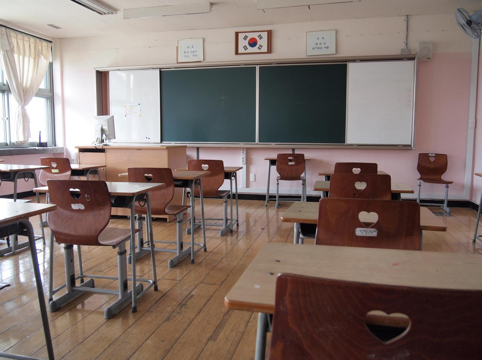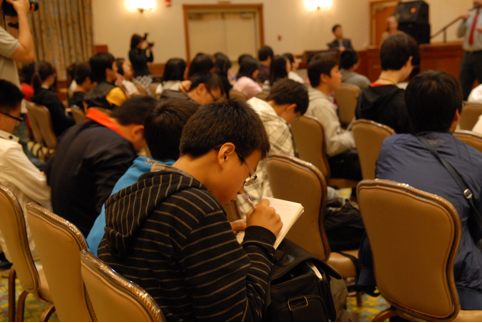Don't miss out on the best jobs!
Subscribe to HelpGoAbroad and weekly we will sent you an email with latest job posts. Provide your email address below
The capital of South Korea is one of the most cosmopolitan and busy cities in Asia, and there are a wide range of people who travel to the city every year in order to help fulfill the need for English teachers there. The packages that are on offer for English teachers in Seoul can be very attractive, and in most cases they will include several additional benefits that will make moving to Seoul a lot easier for those coming in from different countries. As well as offering good employment prospects, Seoul is also a great place to explore, with plenty of things to do and a wonderful night life that will help you to blow off steam too.
Different Institutions Which Employ English Teachers
One of the great things about teaching English is that it opens up a range of different teaching opportunities, and in Seoul there are a range of different jobs available, although the best ones can often be quite competitive when it comes to the number of applications they receive. The school system in Seoul is one of the biggest employers of English teachers in the country, and they offer a regular salary with a good amount of holidays, although in many cases you can be teaching classes as large as fifty students. However, the working hours here are generally shorter than in most jobs in Korea, while most schools will also have a Korean teacher in the class with you to help with translation and discipline in the class.
The other alternative is to find work with one of the 'hagwons', private academies that employ international teachers to help students that can range from beginners all the way up to advanced students. Salary is generally better in these academies, and they usually offer smaller class sizes which helps you as a teacher and also allows you to give more attention to your students. There have been some problems where teachers can be released at short notice, although in most cases the business is good and some teachers can even choose to be flexible with their hours. These academies also tend to have less holiday allowance than in the school system.
Salary And Holiday Entitlements
In most cases, the salaries that those teaching English in Seoul on a full time basis will equate to between $1850 to $2300 per month, and many people working as teachers in the country also manage to save money during their visit to the country. These wages can vary slightly, with those choosing to work in the public school system generally tending to get lower salaries than those working in the private education academies.
However, the payoff for the increased salary is seen in the longer working hours that are expected from those in the private academies, and also in the reduced holiday allowances offered by these businesses. Staff in the academy will usually be allocated around ten days annual leave per year, which in some cases can include public holidays too. Those working in schools will find much better holidays, ranging from a minimum of two weeks up to two months in some cases, with public holidays on top of this allowance.
Accommodation And Other Employment Benefits
Those who are hired to work in Seoul from other countries are offered several benefits on top of their basic salary once they have arrived, and the lure of free accommodation is definitely a big plus point. In most cases this will be an apartment in a large tower block, although it is definitely worth checking to make sure the commute to your place of work is not too strenuous. The apartments are generally very compact, although if you do prize your living space then offering to share with other teachers can give you the chance of having a larger apartment, albeit one where the facilities are shared.
Qualifications Required For Teaching English In South Korea
One of the surprising aspects of teaching English in Seoul, and throughout South Korea, is that actually having a Teaching English as a Foreign Language (TEFL) qualification is not essential. It can certainly help you to achieve some of the best jobs on offer in the city, but the only real qualification required in order to teach in the country is to have a Bachelor's or Master's Degree. Having a good history in education can also stand you in good stead when applying for the most desirable jobs, and can also lead to a higher salary if you can prove your experience in the field.
The Lifestyle And Culture In Seoul
An attractive feature of life in Seoul is that it offers an opportunity for those who are not sure if they can fully adapt to South Korean life to get a taste for the country. Seoul is very cosmopolitan and has an excellent range of restaurants offering international cuisine, while it also has the highest proportion of expats and English speakers, which can make it easier to settle there than in other countries.
The night life in the city is excellent, and you can also enjoy a wide range of historic sights and cultural experiences that will help you to get a better understanding of the local culture. This is a great city in which to live, and if you can embrace the experience of living in a completely different country, then it can be an exhilarating and life affirming place to teach.
Sign in to publish a comment



Be the first to comment on this post.